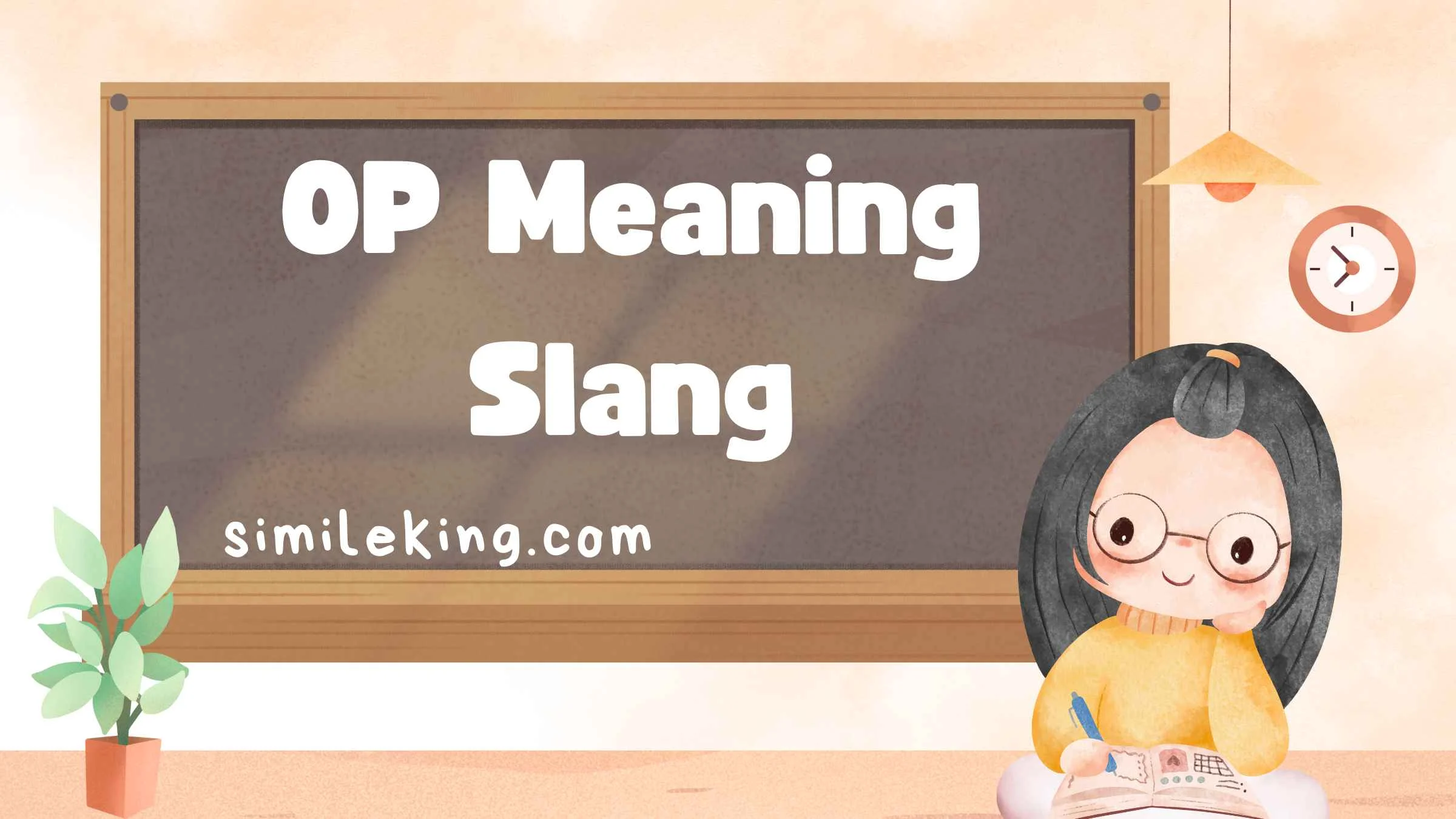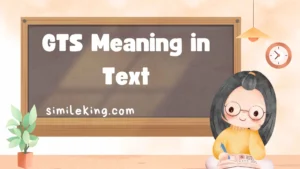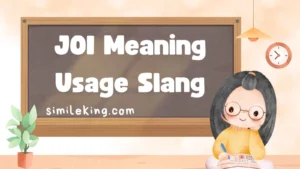Language is always changing—especially in online spaces like gaming, social media, and texting. One word that has taken on a life of its own is “OP.” You’ve probably seen it on platforms like TikTok, Reddit, or Twitter, and maybe even in professional gaming discussions. But what exactly does “OP” mean in slang? How do you use it correctly in different contexts, from casual chats to professional discussions?
This article will walk you through everything you need to know about OP’s meaning in 2025, including its slang definition, history, nuances, alternatives, and real-world examples. By the end, you’ll not only understand what OP stands for—you’ll also know how to use it naturally, whether you’re chatting with friends, writing content, or trying to connect with your audience.
What Does “OP” Mean in Slang?
In 2025, the most common slang meaning of “OP” is “overpowered.” This originates from gaming culture, where a character, weapon, or ability that’s too strong compared to others is labeled “OP.”
Example:
- “That new character is so OP—it ruins the balance of the game.”
But OP doesn’t stop there. Depending on context, OP can mean different things:
- Overpowered – Dominant, unbeatable, too strong.
- Original Poster – The person who started a thread or discussion online.
- Outstanding Player/Performance – Complimenting someone’s skills.
- On Point (informal use) – Something stylish, accurate, or perfect.
In modern 2025 usage, overpowered and original poster remain the most widely used definitions. However, with social media’s constant evolution, the nuance often depends on tone, setting, and who you’re talking to.
The Evolution of OP in Digital Language
To understand why OP is so versatile, it helps to look at its journey:
- 1990s–2000s (Early Gaming Era): Gamers on forums like GameFAQs and IGN started calling strong weapons or tactics “overpowered” (OP).
- 2010s (Social Media Boom): OP entered meme culture. It started showing up on Reddit, where “OP” often meant “original poster.”
- 2020s (TikTok/Discord Generation): OP became shorthand not just for gaming but for anything “unfairly strong” or “impressive.” A song could be OP. A fashion look could be OP.
- 2025 (Current Usage): OP is mainstream slang. It’s common in gaming, but also in sports, online debates, and even casual texting.
Nuances of OP in Different Contexts
The same word can carry very different tones depending on where it’s used. Here’s a breakdown:
1. Casual Conversations
- “Bro, that move was OP!” (means: too powerful, impressive)
- Tone: Playful, fun, often exaggeration.
2. Professional Gaming/Esports
- “Developers need to nerf this OP ability to balance the tournament.”
- Tone: Technical, analytical, precise.
3. Social Media Discussions
- “OP didn’t provide enough context in the post.”
- Here, OP = Original Poster.
- Tone: Neutral, informational.
4. Everyday Slang
- “Her outfit is OP today.”
- Tone: Casual, trendy, means “too good, unbeatable.”
Alternatives to OP (Slang Variations You Can Use)
Sometimes repeating “OP” feels overdone. Luckily, English has tons of alternatives you can use depending on formality and tone:
Casual Alternatives
- Busted – Too strong or unfair in gaming.
- God-tier – Exceptionally good.
- Broken – Game mechanics or skills that are unfairly powerful.
- Fire – Trendy, stylish, “amazing.”
Professional Alternatives
- Dominant – Strong in a competitive or analytical sense.
- Imbalanced – Neutral way to say “overpowered.”
- Outstanding – A positive, professional compliment.
- Unmatched – Polished way of saying “too strong.”
Polite/Neutral Alternatives
- Highly effective – Softened version of OP.
- Remarkably strong – Balanced praise.
- Very skilled – Focused on the person, not the imbalance.
How to Choose the Right Alternative
- Gaming discussion: Use overpowered, broken, or imbalanced.
- Professional setting: Choose outstanding, dominant, or unmatched.
- Casual texting or memes: Use fire, god-tier, or simply OP.
Always adjust based on your audience. Using “busted” in a business email would sound unprofessional, while saying “remarkably strong” in a TikTok comment might come off as stiff.
10 Examples of OP in Action (2025 Edition)
Here are 10 fresh, natural examples that reflect how OP is being used in modern slang today:
- “That AI tool is totally OP—it makes everything so easy.”
- “The new basketball recruit is OP compared to the rest of the team.”
- “OP’s argument in this thread is actually pretty convincing.”
- “This song is OP—it’s been stuck in my head all week.”
- “Your editing skills are OP, teach me your ways!”
- “Gamers are saying the update made the weapon too OP.”
- “Her makeup game is OP—like straight-up flawless.”
- “OP needs to clarify their point before we continue.”
- “The strategy looked OP until someone figured out the counter.”
- “That movie’s visuals are OP, absolutely next-level.”
Notice how the meaning shifts: sometimes it’s overpowered, sometimes original poster, and sometimes just a superlative for amazing.
Why OP Matters in 2025 Communication
Slang like OP shows how flexible English has become in digital spaces. It reflects speed, creativity, and the merging of gaming culture with mainstream communication. Knowing how to use OP—and when to swap it for an alternative—helps you sound natural, updated, and connected to current trends.
Whether you’re gaming, posting online, or writing for a professional audience, OP has become a powerful shorthand for describing dominance, strength, or excellence.
Final Thoughts
In 2025, OP is more than just a gaming term—it’s cultural currency. It can mean overpowered, original poster, outstanding player, or even “on point,” depending on context. By mastering its nuances and using the right alternatives, you’ll not only avoid confusion but also sound more natural in any setting.
Slang evolves quickly, but OP has proven its staying power. If you want to stay sharp in digital communication, keep OP in your vocabulary—just remember to tailor it to your audience.





